Can a Labrador Eat Pasta?
Date Published: February 12, 2024 | Last Modified: February 16, 2024
Let's start by clarifying a common question - Pasta is indeed something labradors can enjoy. In this article, we will delve into the health benefits of incorporating Pasta into your furry friend's diet, as well as the potential pros and cons to consider. Safety concerns, or the lack thereof, will also be addressed, exploring whether Pasta is toxic to your lovable labrador. And, most importantly, we will answer the vital question of whether Pasta is actually good for your canine companion. Stay tuned for a comprehensive look into this popular human food and its suitability for your four-legged family member.

Are Pastas Good for Labradors?
When it comes to labradors, pastas can be a beneficial addition to their diet if provided in moderation. Labradors are a high-energy breed known for their active lifestyle, requiring a diet that can match their energy needs. Pasta can offer a good source of carbohydrates, which can provide a quick energy boost for your furry friend before activities such as a long walk or a game of fetch.
However, it's crucial to ensure that the pasta is plain and cooked without any added seasonings or sauces that could be harmful to your labrador. Additionally, pasta should not replace their primary diet but rather be given as an occasional treat to prevent dietary imbalances. Always consult with your veterinarian to determine the appropriate amount of pasta to include in your labrador's diet based on their individual needs.
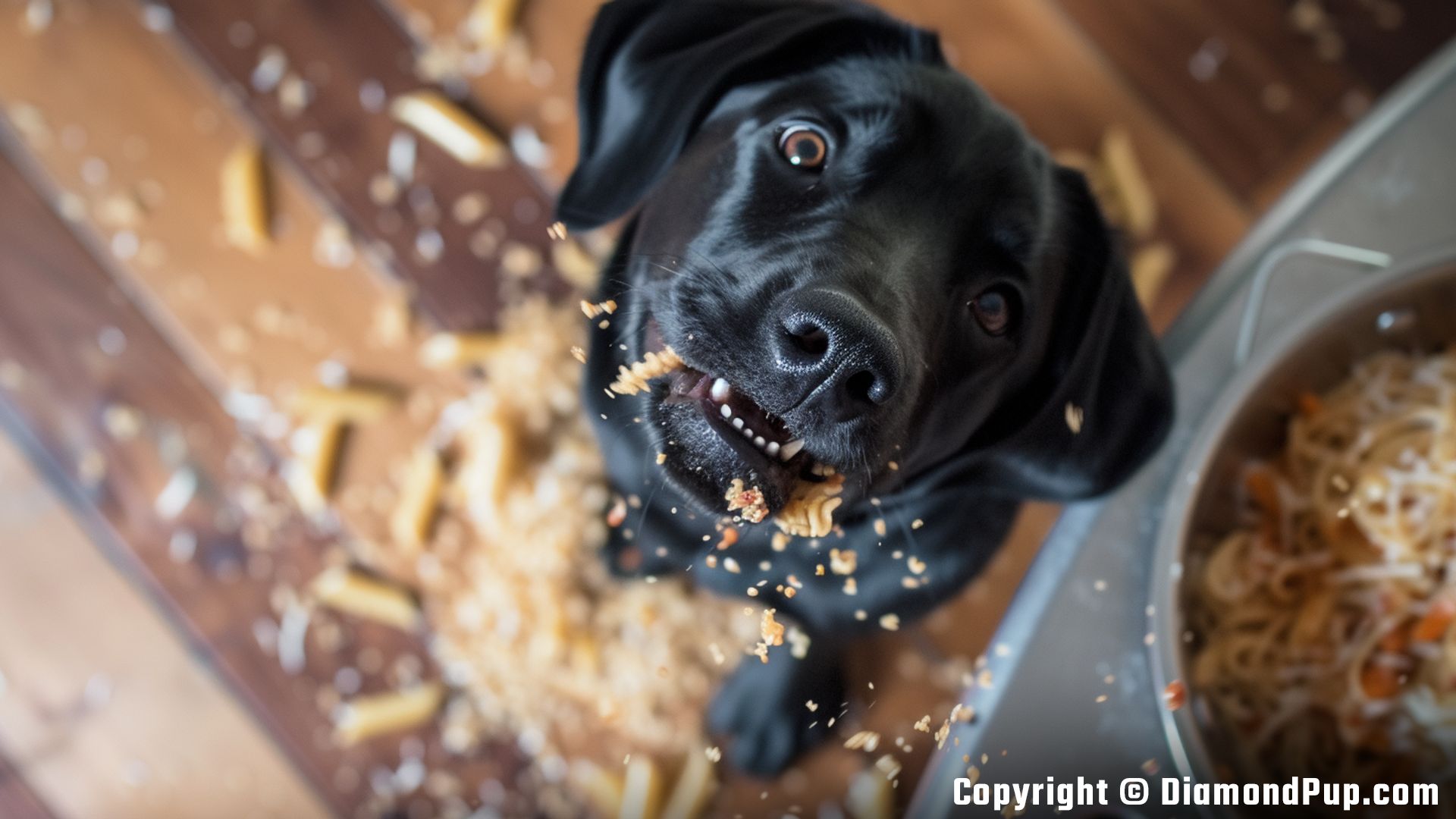
Understanding the Benefits of Pastas for Labradors
Labradors can benefit from the inclusion of pasta in their diet due to its carbohydrate content. Carbohydrates are an essential energy source for dogs, providing fuel for their daily activities and bodily functions. Pasta can be a great source of easily digestible carbohydrates for energetic breeds like Labradors, helping to sustain their energy levels throughout the day. Additionally, pasta can also provide some B vitamins and minerals, contributing to overall health and well-being.
When choosing pasta for your Labrador, opt for plain, cooked pasta without any sauces or seasonings. Whole wheat or grain pasta may be a healthier choice, offering more fiber and nutrients compared to refined pasta. As always, moderation is key, as pasta should only be a small part of a balanced diet tailored to your Labrador's specific nutritional needs and lifestyle.
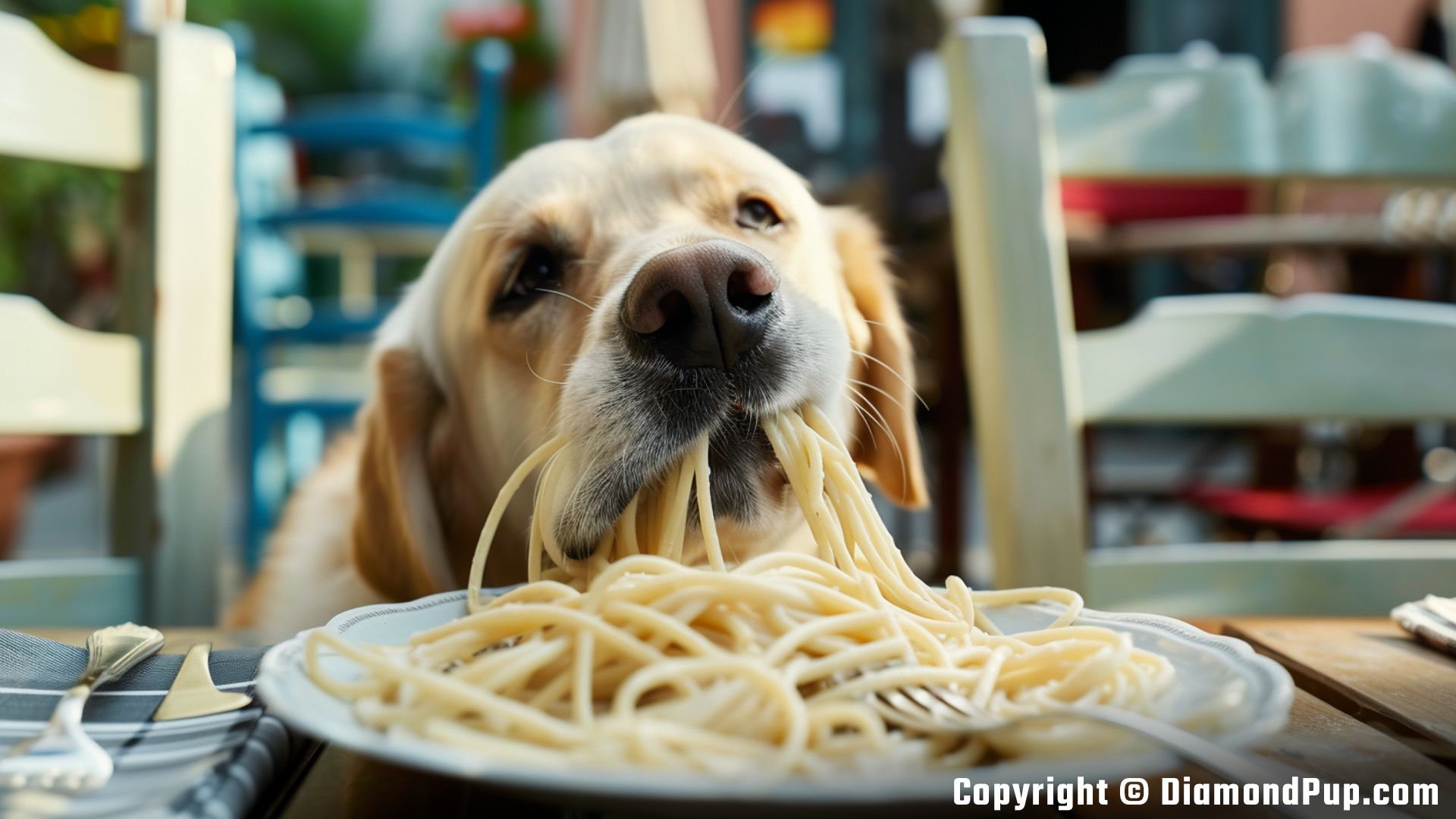
Nutritional benefits of Pastas for Labradors
When choosing a pasta for your Labrador, it is important to opt for whole grain or whole wheat options over refined pasta. Whole grain pasta contains fiber, which can aid in digestion and help your furry friend feel full for longer periods. Additionally, whole grain pastas are a good source of complex carbohydrates, providing sustained energy levels for your active Labrador. Look for pastas with minimal added salt or spices, as these can be harmful to your pet's health. Overall, when chosen wisely, pasta can be a nutritious addition to your Labrador's diet, offering a balance of carbohydrates, fiber, and essential nutrients.

Safely Introducing Pastas to Your Labradors' Diet
When introducing pasta to your Labrador's diet, it is important to start slowly and monitor for any adverse reactions. Opt for plain pasta without any sauces or seasonings to avoid any potential gastrointestinal upset. Gradually incorporate small amounts of cooked pasta into your dog's meals to assess their tolerance. Remember that pasta should only be a small part of your Labrador's overall diet and should not replace their regular high-quality dog food. People also ask about whether can beagles eat pasta or something very similar, concerning their own pets' dietary needs. If your dog shows any signs of digestive issues or allergic reactions, such as vomiting, diarrhea, or itching, discontinue feeding them pasta and consult with your veterinarian.
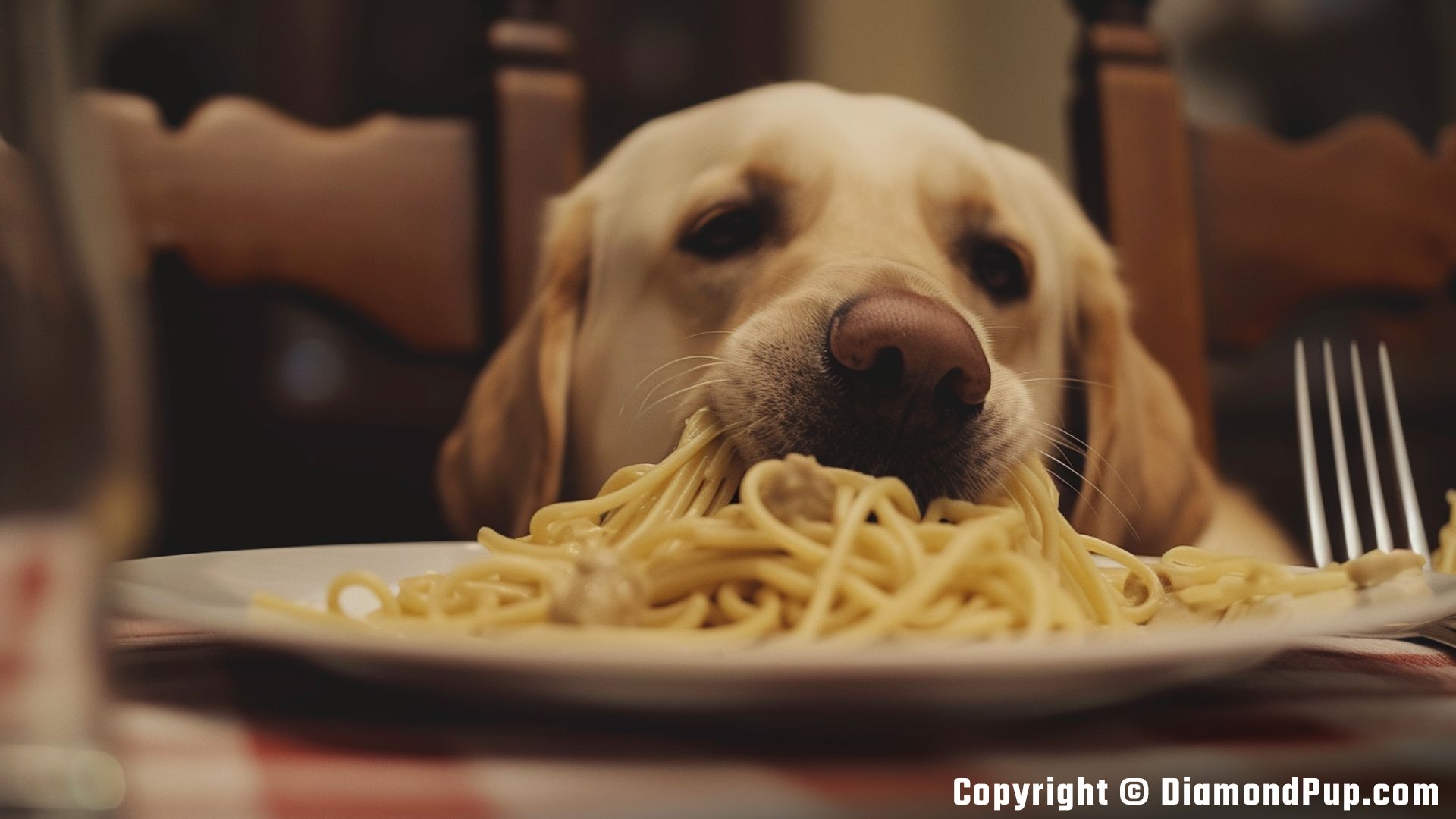
How much pasta can a dog eat safely?
When it comes to feeding your Labrador pasta, it's essential to keep portion sizes in mind. While pasta can be a safe and enjoyable treat for your furry friend, moderation is key. As a general guideline, pasta should only make up a small portion of your dog's overall diet. A recommended serving size is about half a cup of cooked pasta per 20 pounds of body weight, given no more than once or twice a week. This ensures that your Labrador receives the nutritional benefits of pasta without overloading on carbohydrates or calories. Always remember to adjust your dog's regular meals accordingly to accommodate the additional calories from pasta.
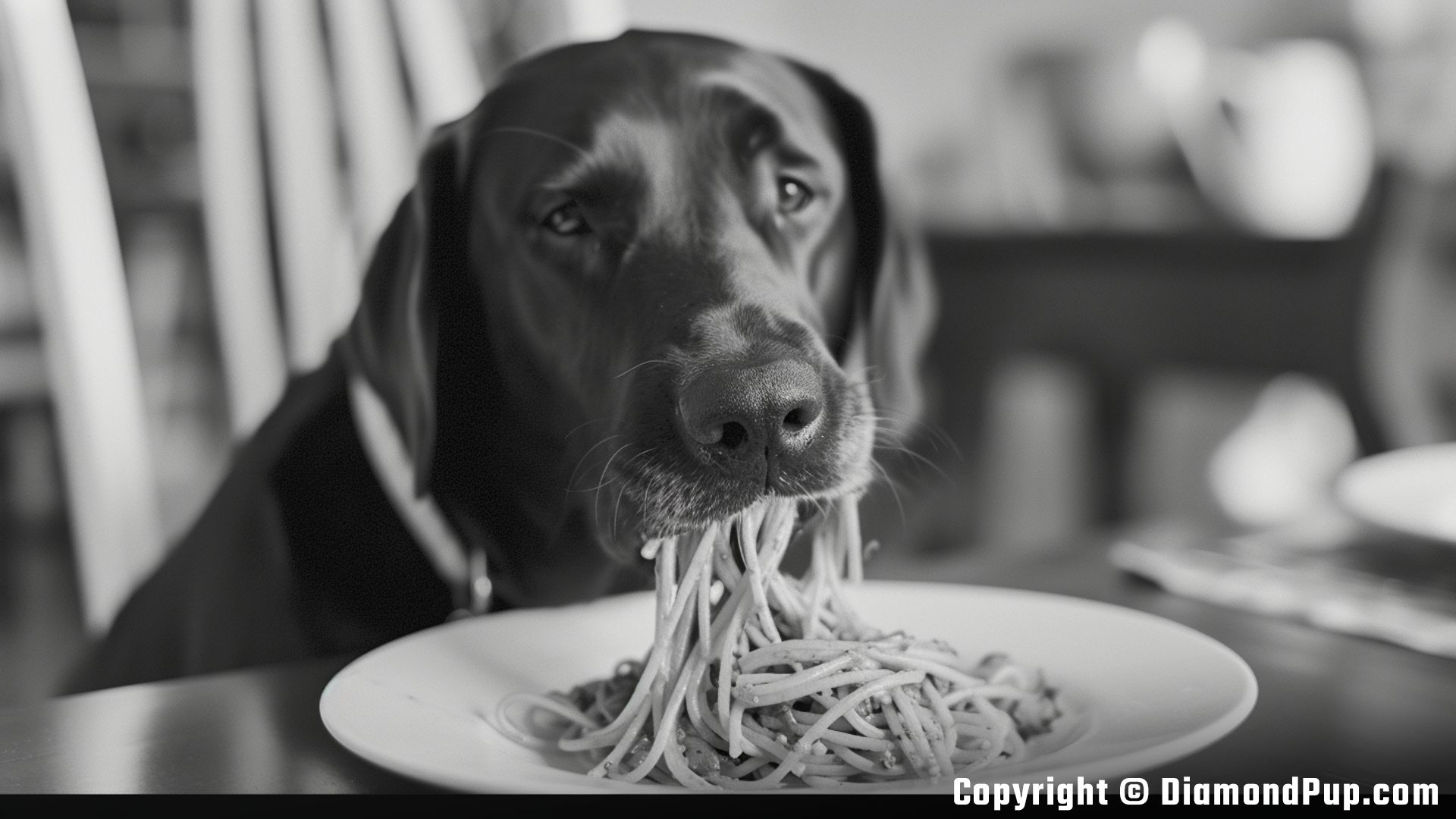
Tips to Remember When Feeding Your Labradors Pastas
When feeding your Labrador pasta, it is important to remember a few key tips to ensure they are getting the most out of this addition to their diet. Firstly, opt for whole grain or whole wheat pasta to provide more fiber, vitamins, and minerals compared to white pasta. Secondly, portion control is crucial - pasta should only make up a small portion of their overall meal to prevent weight gain and nutrient imbalances. is it safe for a husky to eat pasta People also ask about whether similar dietary considerations apply to other breeds. Lastly, avoid adding any sauces, seasonings, or ingredients that are toxic to dogs, such as garlic or onions. By following these tips, you can safely incorporate pasta into your Labrador's diet as an occasional treat.
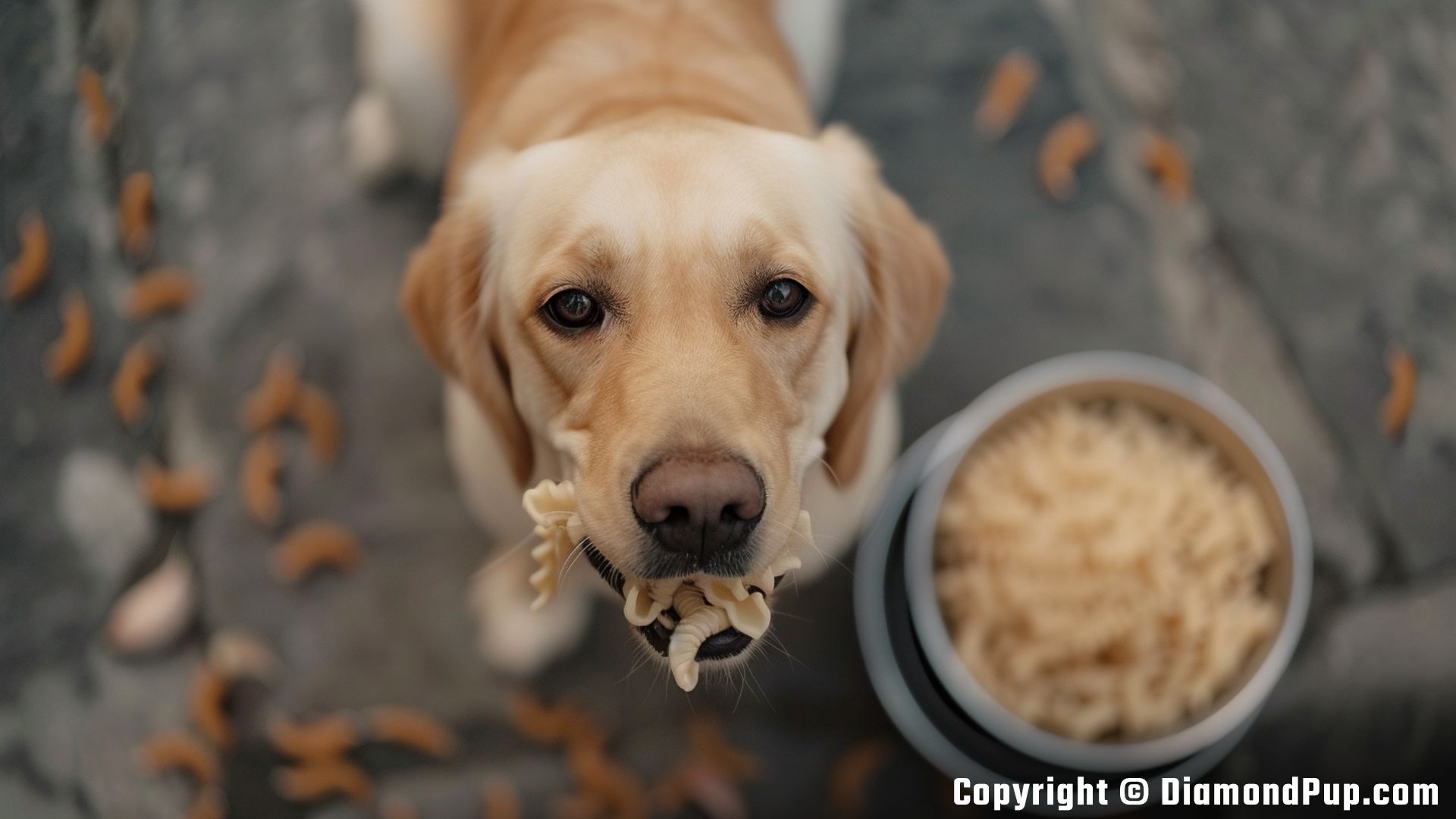
Feeding Your Labradors Pastas
When feeding your Labrador pasta, it is important to choose whole grain or wheat pasta over refined or white pasta. Whole grain pasta contains more fiber, which can aid in digestion and help your dog feel full for longer periods of time. Additionally, whole grain pasta provides more nutrients such as vitamins and minerals compared to refined pasta.
It is also crucial to consider the portion size when feeding your Labrador pasta. While pasta can be a tasty treat, it should not make up more than 10% of your dog's daily calorie intake to ensure they are still receiving a balanced diet. Mixing pasta with lean protein sources and vegetables can create a well-rounded meal for your Labrador, meeting their nutritional needs while still allowing them to enjoy this human food favorite.
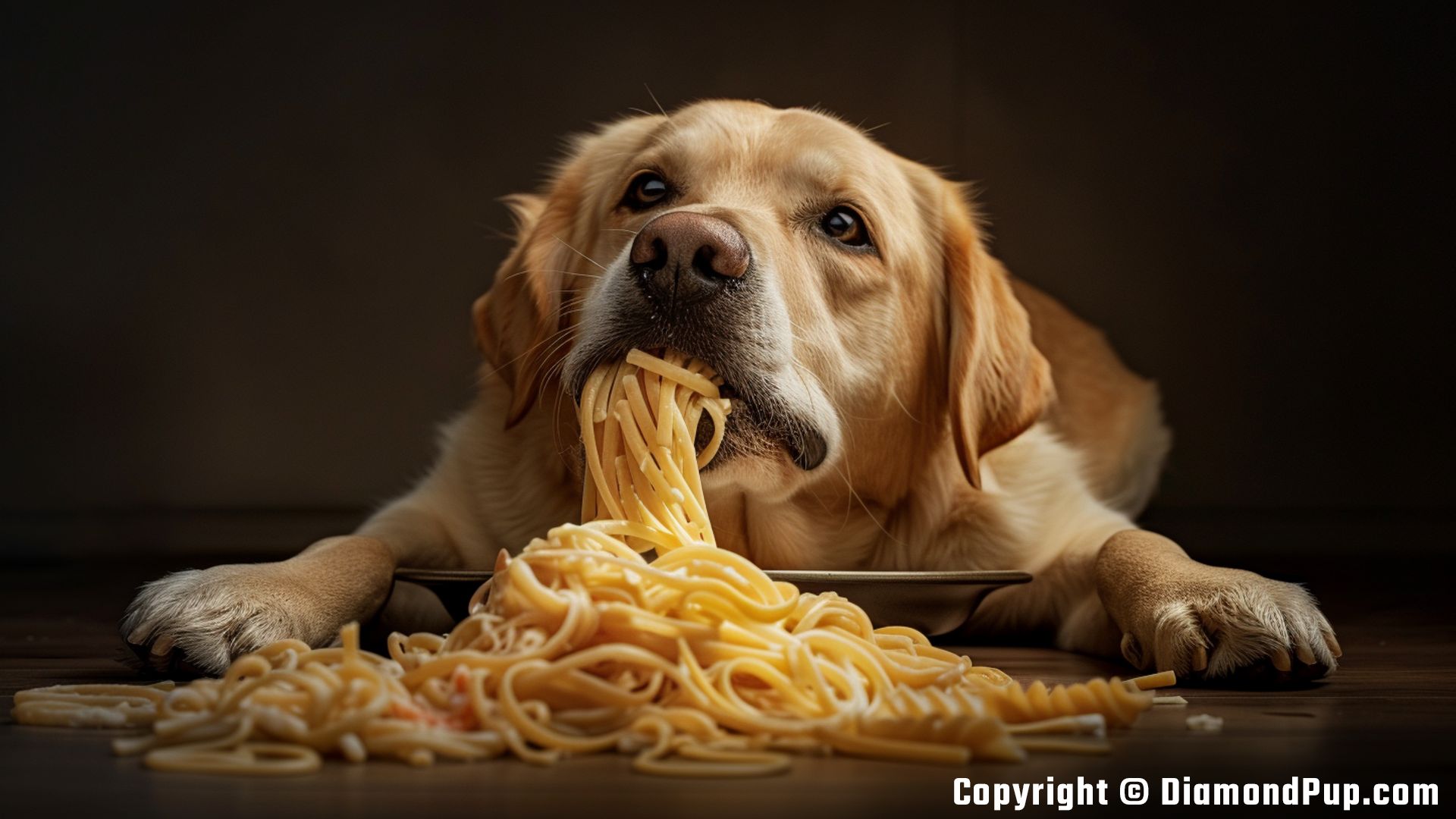
How to properly feed your Labradors Pastas
When it comes to feeding your Labrador pasta, it's important to do so in moderation. While pasta can be a tasty treat for your furry friend, it should not make up a large portion of their diet. It's best to offer pasta as an occasional snack or mix it in with their regular dog food to add some variety.
Additionally, when preparing pasta for your Labrador, opt for whole wheat or grain-free varieties to ensure they are getting the most nutritional benefit. Avoid adding any seasonings, sauces, or ingredients that may be harmful to dogs, such as garlic or onions. Cook the pasta plain and serve it in small, bite-sized pieces to prevent choking hazards. By following these guidelines, you can safely incorporate pasta into your Labrador's diet as a special treat.
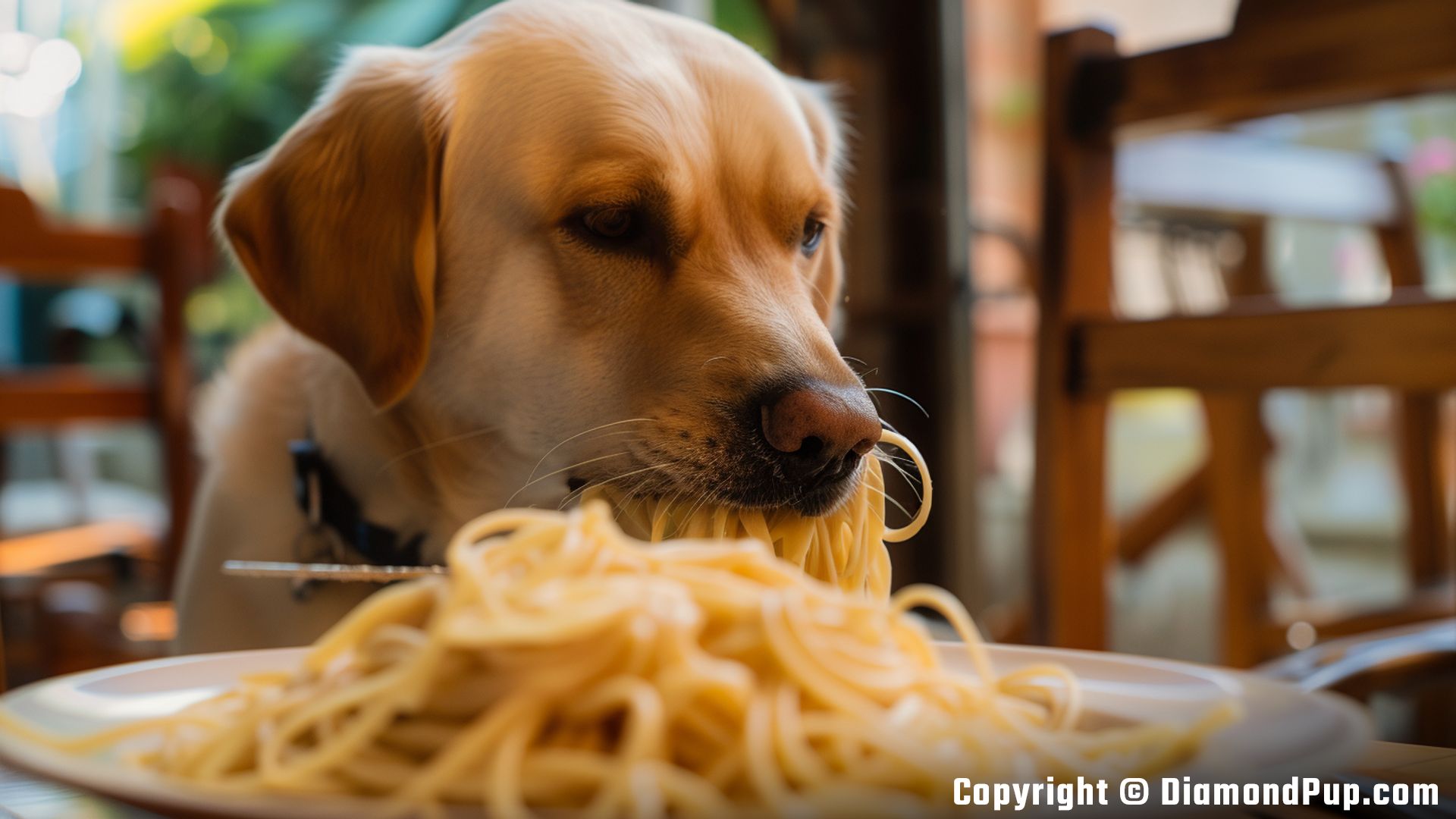
Do Labradors Like Pastas?
Labradors are generally known to be enthusiastic eaters, often displaying a love for food that knows no bounds. When it comes to pasta, many Labradors are no exception. The chewy texture of pasta can be appealing to them, and the variety of sauces or toppings that can be added to pasta can also make it a flavorful treat for your furry friend.
However, it's important to remember that while Labradors may enjoy pasta, it should only be given to them in moderation. Pasta is high in carbohydrates, which can contribute to weight gain if fed excessively. It's best to offer pasta to your Labrador as an occasional treat, alongside a balanced diet specifically formulated for their breed, such as XYZ Labrador Adult Dry Dog Food, to ensure they are meeting all their nutritional requirements without excess calories.
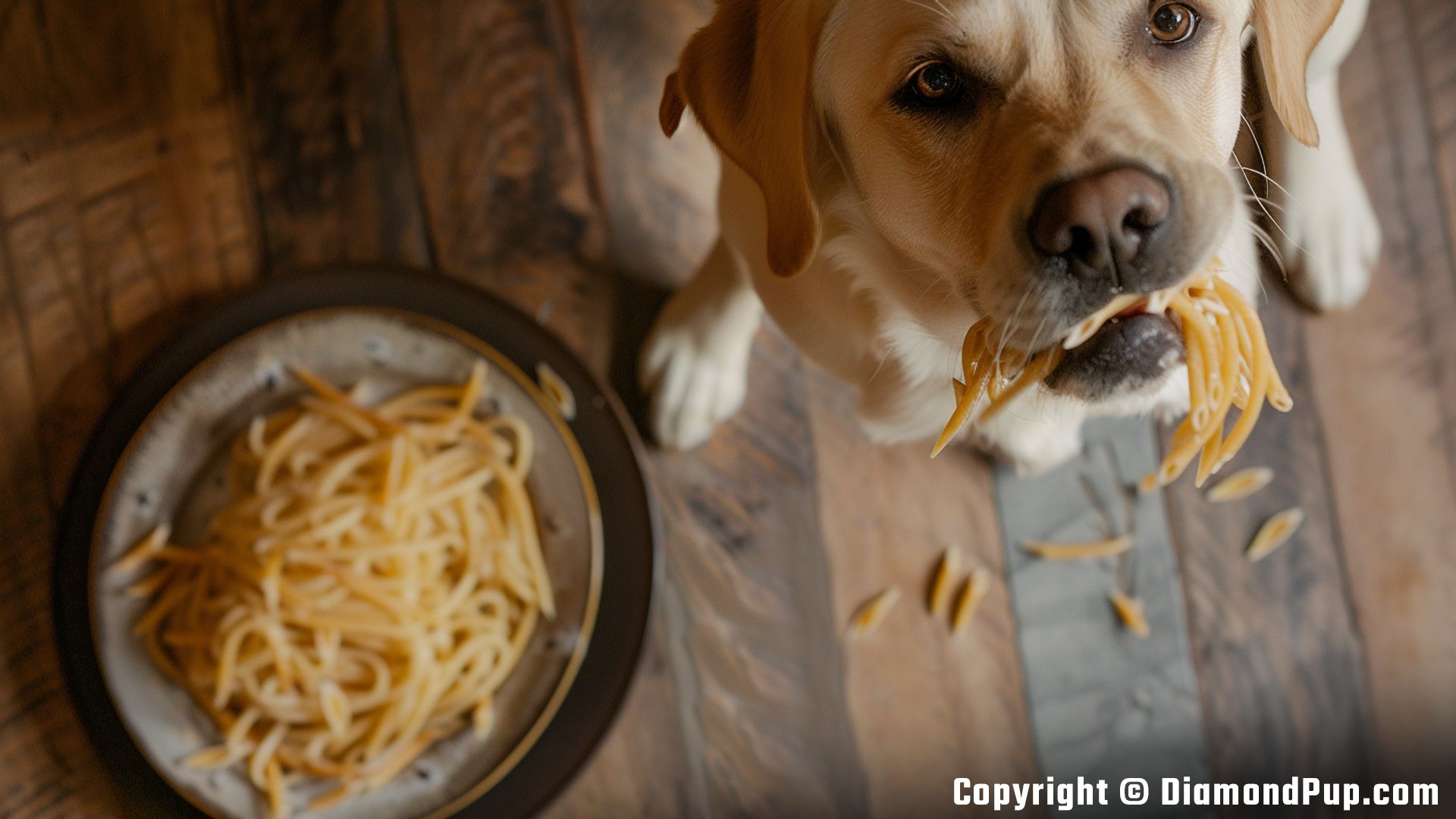
Special Consideration for Labradors
Labradors are known for their hearty appetites and tendency to gain weight if not fed the right diet. When considering incorporating pasta into your Labrador's diet, it's important to keep in mind their specific nutritional needs. Labradors require a balanced diet that is high in protein to maintain their muscle mass and energy levels. Therefore, when feeding pasta to your Labrador, opt for whole grain or whole wheat pasta to provide important nutrients and fiber. Additionally, portion control is key to prevent excessive calorie intake, which can lead to obesity and related health issues.
Furthermore, it's important to consider any existing health conditions your Labrador may have, such as food sensitivities or allergies. If your Labrador has any digestive issues or is overweight, it's best to consult with your veterinarian before adding pasta to their diet. Overall, pasta can be a tasty and safe addition to your Labrador's meals as long as it is given in moderation and as part of a balanced diet tailored to your dog's specific needs.

Can Puppies Have Pastas?
Labrador puppies can enjoy pasta as part of their balanced diet, but it should be given in moderation. Pasta can provide carbohydrates for energy, but it should not be the main source of nutrition for growing puppies. It is important to ensure that the pasta is cooked plain without any seasonings or sauces that may be harmful to their digestive system.
Additionally, it is crucial to consult with your veterinarian to determine the appropriate portion size and frequency of pasta for your Labrador puppy. While pasta can be a tasty treat for your furry friend, it should not replace their specially formulated puppy food that is designed to meet their specific nutritional needs during this crucial stage of growth.
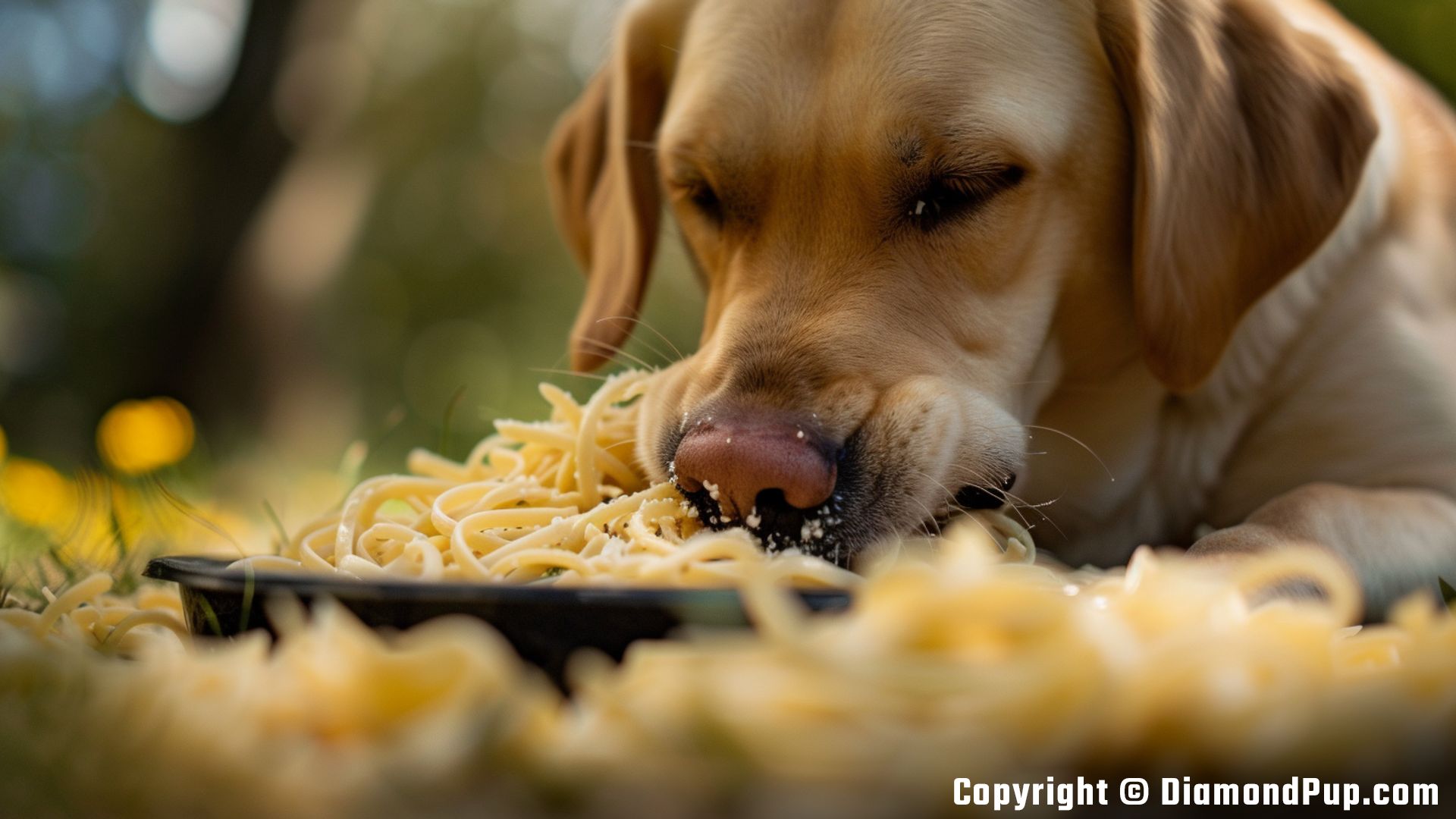
Are there any Labradors that shouldn't eat Pastas?
Labradors, like all dogs, are individuals with unique dietary needs and intolerances. While most Labradors can enjoy pasta as part of a balanced diet, there are some exceptions. Labradors with certain medical conditions such as diabetes or obesity may need to avoid pasta due to its high carbohydrate content. Additionally, some Labradors may have sensitivities or allergies to specific ingredients commonly found in pasta, such as wheat or gluten. People also ask about does pasta affect French bulldogs' health in a similar context. It's crucial to consult with your veterinarian before introducing pasta into your Labrador's diet to ensure it aligns with their specific health requirements.
Recipes for Feeding Your Labradors Pastas
Labradors can enjoy pasta as part of their diet, but it's important to choose the right type and prepare it in a healthy way. Opt for whole grain pasta, which is higher in fiber and nutrients compared to refined pasta. Avoid adding rich and high-fat sauces, as they can lead to obesity and digestive issues in Labradors. Instead, try mixing cooked pasta with lean protein such as boiled chicken or turkey, and steamed vegetables like carrots or green beans. This balanced meal provides essential nutrients while keeping your Labrador at a healthy weight.
Remember to always consult with your veterinarian before making any significant changes to your dog's diet, including incorporating pasta. They can provide personalized recommendations based on your Labrador's specific nutritional needs and health conditions. By choosing the right ingredients and preparing pasta in a healthy way, you can safely and enjoyably include it in your Labrador's meals.
Alternatives to Pastas for Labradors
If you're looking for alternatives to pasta for your Labrador, it's important to consider their nutritional needs. While pasta can be a part of their diet in moderation, it's crucial to ensure they are getting a balanced diet overall. One excellent alternative is to incorporate cooked brown rice into their meals. Brown rice is a good source of complex carbohydrates, as well as fiber, which can help with digestion. Additionally, you can also consider adding cooked sweet potatoes to their diet. Sweet potatoes are rich in vitamins and minerals, such as vitamin A and potassium, which can benefit your Labrador's health.
Another great alternative to pasta for Labradors is cooked quinoa. Quinoa is a complete protein source, containing all nine essential amino acids that dogs need. It's also gluten-free, which is beneficial for dogs with sensitivities. Lastly, you can try adding cooked vegetables, such as carrots or green beans, to provide additional nutrients and fiber to their diet. Remember, it's always best to consult with your veterinarian to ensure you are meeting your Labrador's specific dietary requirements.
Common Questions About Labradors and Pastas
One common question that arises when discussing labradors and pasta is the issue of portion control. While pasta can be a tasty treat for your furry friend, it is important to remember that it should only make up a small part of their overall diet. Too much pasta can lead to weight gain, which can put additional strain on your labrador's joints and potentially lead to health issues such as obesity. It is recommended to limit the amount of pasta given to your labrador and to incorporate it into their diet in moderation.
Another common concern is the type of pasta being offered to your labrador. Opt for whole wheat or grain-based pasta options rather than white pasta, as whole wheat options contain more fiber and nutrients that can benefit your dog's digestive health. Additionally, avoid pasta dishes that are high in sodium, seasonings, or sauces that may be harmful to your labrador's health. Always ensure that the pasta is plain and cooked without any added ingredients that could be potentially toxic to your canine companion.
Subscribe Now
Stay updated with the latest news and articles! We'll keep you updated on the latest tips for your pet Labrador
